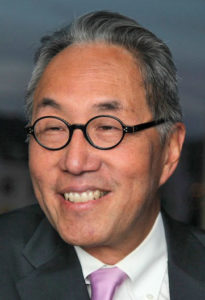From The Planning Report, Los Angeles, August 14, 2019
TPR interviewed Michael Woo, a former LA City Council member (1985-93) who recently retired after 10 years as Dean of Cal Poly Pomona’s College of Environmental Design — the first urban planner to hold that position. (Woo holds a master of city planning from UC Berkeley and a B.A. in politics and urban studies from UC Santa Cruz.) The interview starts with the loaded observation that “city planning seems disrespected by all interests,” and later asks, “what should schools of planning and architecture be inculcating in their students?” and “who should planners be planning for?” Among Woo’s responses were these morsels:

“… the best graduates we produce will be more than just technicians, because the software will be constantly changing. The best graduates will be generalists whom the employer can move around to different assignments and different teams that may not be predictable at the time the graduate is originally hired. Oral and written communication skills are very important because if you can’t communicate your good idea, what good are you?
“… planners should be planning for the future.
“… in a democratic society, the elected leadership has the primary responsibility for defining a vision of the future. Of course, the leaders may need to be responsive to the senior citizens among us, or the people who are registered voters among us. But, beyond the short-term responsibility of representing the people who elect the officeholders, the elected officials and the politicians have a higher responsibility to think about the future, including people who aren’t here yet, haven’t been born yet, and who can’t vote.
“… the public sector needs to step up and define what the future is going to be about. The private sector definitely deserves to have a large voice, but it’s not the private sector that should decide. By definition, the private sector cannot define what is in the best interest of the public.”

